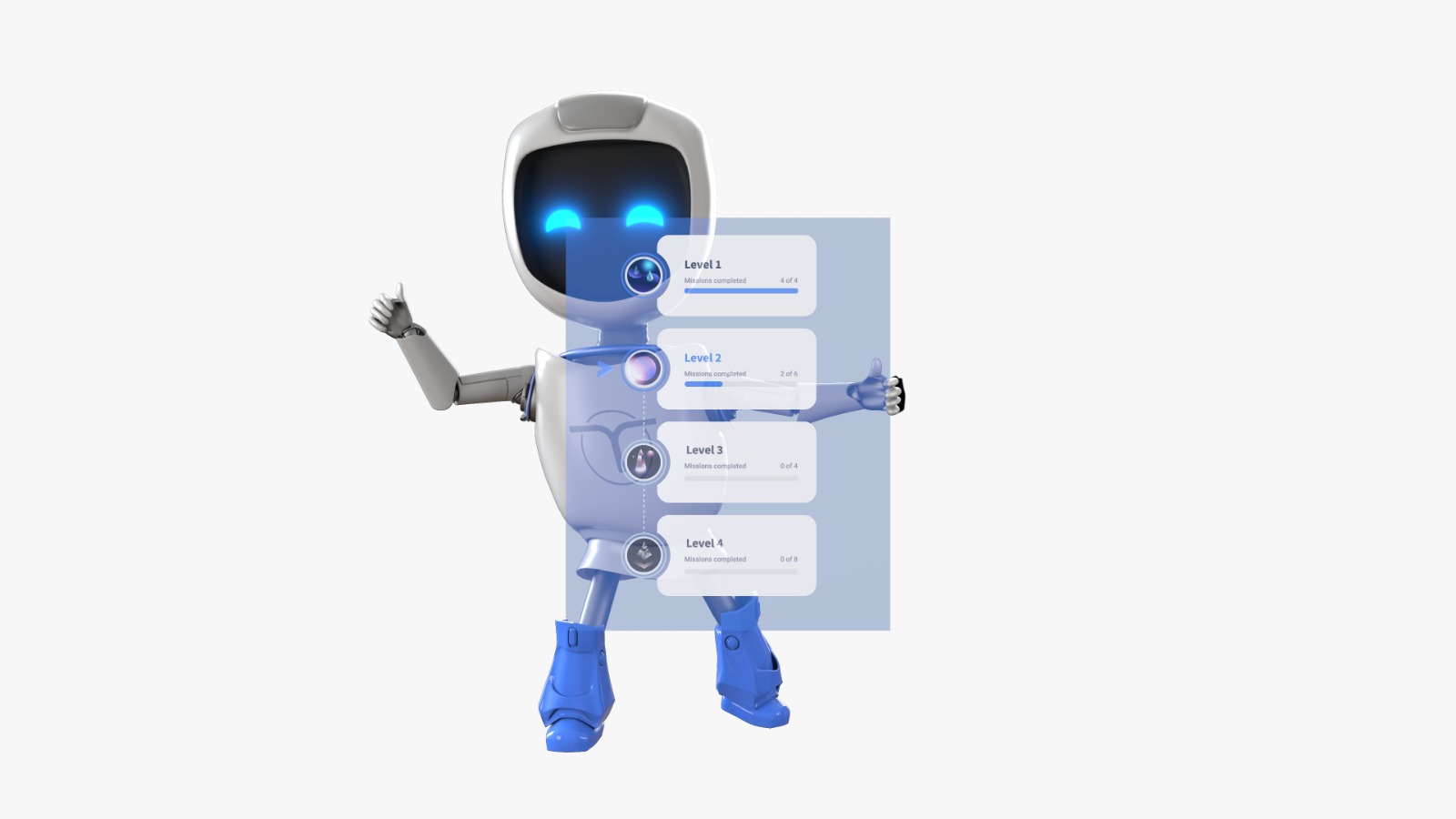As an L&D professional, you know that time spent on onboarding procedures, skills improvement training, or learning program evaluations is time-consuming. Especially for those in the Learning and Development (L&D) department who have to serve a workforce of hundreds or even thousands of people in large organizations, these challenges are particularly significant.
Moreover, capturing employees’ attention and motivating them to take courses within the company are also burdensome tasks. Fortunately, AI is a game changer and many learning management systems (LMS) already possess powerful AI-based features that can assist in expediting and streamlining training programs.
But what prompts an organization to prioritize upskilling or reskilling its employees in the first place? Well, training opportunities are increasingly crucial. Data from a Gallup study reveals that 48% of American workers would consider switching to a new job if offered skills training opportunities. According to Deloitte’s Global Millennial and Gen Z survey, nearly 30% of respondents cited learning and development opportunities as the primary reason for choosing their job. Here lies the challenge. Despite organizations globally spending over $350 billion on training, only 12% of employees apply the new skills learned in L&D programs to their jobs, as reported by Harvard Business Review.
Introducing microlearning and customized e-learning, assisted by AI, which not only reduces the workload of the L&D department but also aids employees in learning more efficiently and making a genuine impact on the business.
In the following article, we aim to explore how AI will concretely influence various practical aspects and how it can contribute to achieving a better microlearning experience, benefiting medium and large businesses.
Create AI-powered courses from scratch
When it comes to providing solutions for skill improvement or reskilling, every L&D department encounters the challenge of content development. Nowadays, with the help of artificial intelligence, everything becomes much easier. AI-powered content authoring platforms, such as Codeoftalent.com, provide the means to quickly transform any type of document or training material into a gamified experience for employees. This represents a significant step forward for any L&D department aiming to support and develop its workforce without becoming overwhelmed.
AI automated processes reduce the time and costs involved in producing training materials. For example, Codeoftalent.com allows you to design your training from scratch, starting from a goal or from a file. The latter option is also an AI-based solution that enables you to upload any file, whether it’s an internal procedure or new product presentation or a list of key concepts to cover. Based on the information provided, the platform will create an engaging learning journey for your employees that is based on microlearning and it aims to make them apply what they are learning in no time.
This lightens the load for your L&D team, allowing them to whip up training content from a mere idea or material with lightning speed, and then simply tweak and add photos and videos to what the AI creates.[/vc_column_text][/vc_column][/vc_row][vc_row][vc_column][vc_single_image image=”3501″ img_size=”full” add_caption=”yes” alignment=”center”][/vc_column][/vc_row][vc_row][vc_column][vc_column_text]
Do you have a goal? The AI will do the rest
AI-based training enables adaptive and personalized learning. For L&D professionals, the task of creating personalized training is a thing of the past. An AI-powered microlearning platform can create an online learning experience from start to finish, given a goal, target audience, and a few other details. Your task would then be to add “the sparkle” and customize it to your exact needs. This would make your job a lot easier.
For example, with Codeoftalent.com, you can begin by simply typing your goal: improving sales performance. Next, select your audience, such as “sales consultants” or “call center agents”, then choose your industry and the expected outcome, such as “achieving sales quotas.” Finally, let the AI work its magic.
The system automatically generates the structure of the topic, the gamified training journey, and required tests, all in bite-sized sessions, in a matter of minutes. Additionally, you can add images, videos, and other personalized elements of your choice to enhance the learning experience, or you can keep those added by our AI.
Therefore, AI plays an essential role in improving learning outcomes, increasing learner satisfaction, and enhancing the business mission for growth teams and productivity.
Provide feedback and evaluate easily
An essential component of microlearning assisted by AI is providing feedback and personalized support for learners. It offers trainers and business managers the means to evaluate and support employees every step of the way. It also helps participants learn from each other and share experiences. For example, participants or managers can share ideas, best practices, documents or guides with the team that provide examples on how to avoid mistakes in sales or dos and don’ts in workplace safety to prevent accidents.
This learning model is also equipped to assess the energy level of participants and monitor the progress of each learner.
Design your first training right now!
Training employees using a microlearning platform with AI capabilities for content authoring and customization is a means for companies to save time and money, but it is also an opportunity to streamline team growth.
If you want to maximize the benefits of AI in practice, it’s important for the organization you’re a part of to invest in understanding and adopting these technologies in various forms. Whether it’s onboarding, sales, soft skills, or compliance training, create the right training and help your employees become more efficient and happier in their roles.
Click here to try it now.[/vc_column_text][/vc_column][/vc_row]





